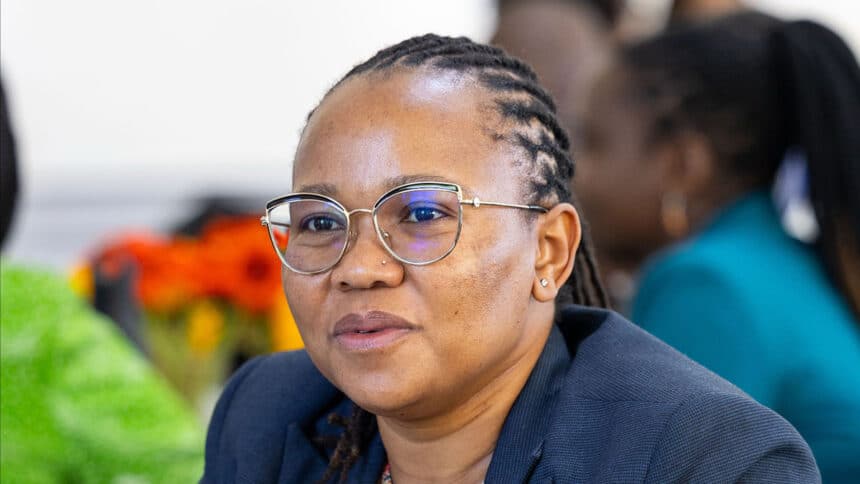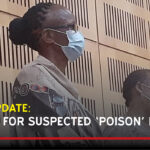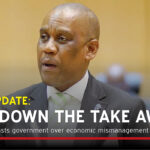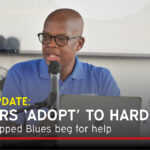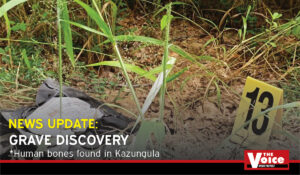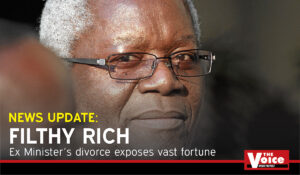Making the world a better place
An alumni of both the University of Botswana (UB) and St Georges, a private medical school and international university in Grenada, West Indies, Dr Orapeleng Phuswane-Katse is no ordinary Doctor.
Blessed with a big heart and an even bigger brain, the Mochudi native is a committed community builder determined to make a difference.
Specialising in Public Health Medicine, Dr. Pushwane-Katse is currently employed by the Ministry of Health as the Head of Preventive Programmes.
Based in Orapa, the healthcare expert is known for her dedication to nurturing the girl child, instilling confidence in them at a young age through programmes such as Bespoke Wellness and Girls for Girls (G4G).
Established in October 2020, G4G Botswana runs in-person as well as online mentorship cohort sessions, and has graduated over 300 mentees and 100 mentors.
Ultimately, they aim to transform the country, having more empowered and confident women and girls contributing meaningfully to the nation’s development.
Their targets include seeing improved female representation in the 2029 general elections.
Upon completion of her Medical Degree in 2011, Dr. Pushwane-Katse received the Gold Humanism Honour Award from the Gold Humanism Honour Society of United States of America.
The award recognises outstanding medical students who showed great compassion and dedication to the health of the community they were a part of.
In 2015, Dr. Phuswane became the first Medical Doctor in Botswana selected for the prestigious Mandela Washington Fellowship, a flagship program of former USA President Barrack Obama.
She spent seven weeks in New York at Syracuse University, in the Maxwell School of Public Management.
The Public Health Physician is also the 2019 winner of the Botswana National Youth Council’s (BNYC) ‘Best Youth in Promoting Health and Wellness in Botswana’ award.
In this interview, the good doctor opens up about her profession and passion for community service.
Take us back to your days as a little girl growing up in Mochudi. How would you describe your upbringing?
I was raised in a loving home that allowed me to grow as an individual.
My mother travelled a lot which exposed me to different places, cultures and people.
To this day, I think I have good networking skills because I had these interactions and made these connections with people growing up.
This is something I don’t take for granted and consider a strength.
And how did you come to pursue medicine?
My initial passion was always to become a pilot – however, I wasn’t particularly strong in Physics.
When I began my Bachelor of Science (BSc) at the University of Botswana (UB), my plan was to pursue Dentistry, but somehow my journey led me to medicine.
One thing I was always certain about was my desire to help people.
You’re a beneficiary of the Mandela Washington Fellowship programme. How has this programme helped shape your vision for transforming healthcare leadership in Africa?
The programme immensely shaped my understanding of leadership; most of the principles I learned there are the ones I still apply today.
I believe that universal health coverage is key to improving healthcare and ensuring access to care for everyone in Botswana.
As a leader, this is one of the key goals I strongly believe in achieving.
You’re also an alumni of St Georges University. What impact did the institution have on your medical journey?
SGU provided a holistic approach to medicine which allowed me to work in a very diverse environment.
I was able to work with people from different academic backgrounds, strengthening my skills even in new ways.
To this day, I deeply value ‘diversity in learning’.
Why would you recommend SGU to Batswana students interested in pursuing medicine?
I believe that SGU is an international school that not only provides high-quality education but also offers valuable support services to help international students adapt to an international environment.
It helps prepare students for whatever field they wish to pursue.
You graduated from SGU in 2011 and have been working in Botswana ever since. Why did you decide to come back home?
I wanted to serve Botswana, and who better to serve them than a Motswana who speaks the language and understands the challenges there.
I also wanted to grow within my country and establish roots here.
What’s the most memorable part about living in Grenada?
I miss the beach and going there to de-stress whenever I wanted.
I also miss the food and the people.
Grenada was like a second home to me, and that’s what I miss most about it.
It sounds like an amazing place! You’re also a mentor of young girls, through the G4G and Bespoke Wellness programmes. What drives this commitment?
Instilling confidence in the programme participants from a young age helps them grow into confident individuals.
I try to transfer my skills and wisdom to them and connect them with new opportunities.
I am proud to say that some participants have gone on to run for Student Representative Council (SRC) positions at their schools.
What are your goals for the healthcare system in Botswana?
We should all strive for an inclusive healthcare system, which is a system that reaches everyone regardless of their socioeconomic status or distance from healthcare facilities.
One of the ways I am working towards an inclusive health system is by bringing mobile healthcare outreach to rural communities.
As the Ministry of Health’s Head of Preventive Programmes, what does your job entail?
I manage diseases at the population level through public health programme planning, implementation and evaluation at both district and national levels.
I provide technical expertise in multidisciplinary public health engagements, forums, and structures at the national and district levels.
I have successfully collaborated with various stakeholders, including Debswana, the World Health Organisation (WHO), UNICEF, and local government authorities.
My responsibilities include strategic planning, programme review, policy amendments, introducing new health policies and laws, advocacy and promoting health and wellness.
What noticeable successes have been achieved under your portfolio?
I have successfully managed several programs with measurable improvements in performance, including the Child Health Programme, Antiretroviral Therapy (ARV) Program, Prevention of Mother-to-Child Transmission (PMTCT) Program, Malaria Program, Tuberculosis Program, and Monitoring and Evaluation Office.
I oversee the management of the Occupational Health Programme.
I effectively coordinate campaigns for child health immunization programs and monitor adverse events following vaccinations during and after immunization drives.
How big of a problem are Non-Communicable Diseases (NCDs) in Botswana?
Like the rest of the world, Botswana has not been spared of the burden of NCDs.
We are recording a high number of cases, including diabetes, hypertension, various types of cancer, and others.
As a country, we have launched various initiatives to educate the public and reduce new cases, including wellness campaigns that offer free screenings for NCDs.
Your job sounds exhausting. In the absence of a beach in BW, how do you spend your time away from work?
I enjoy spending time with my family, travelling, reading a good book and mentoring children.



